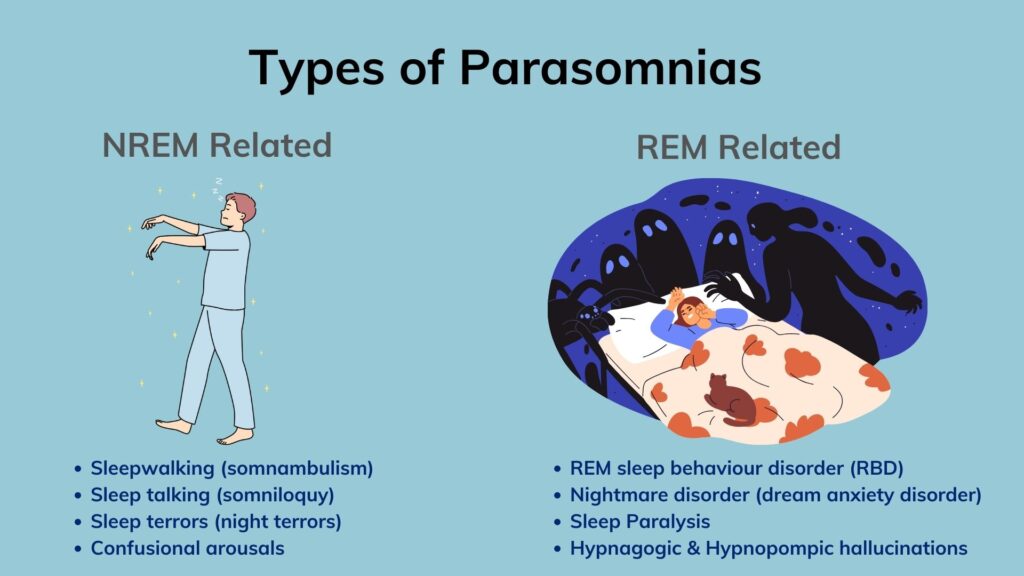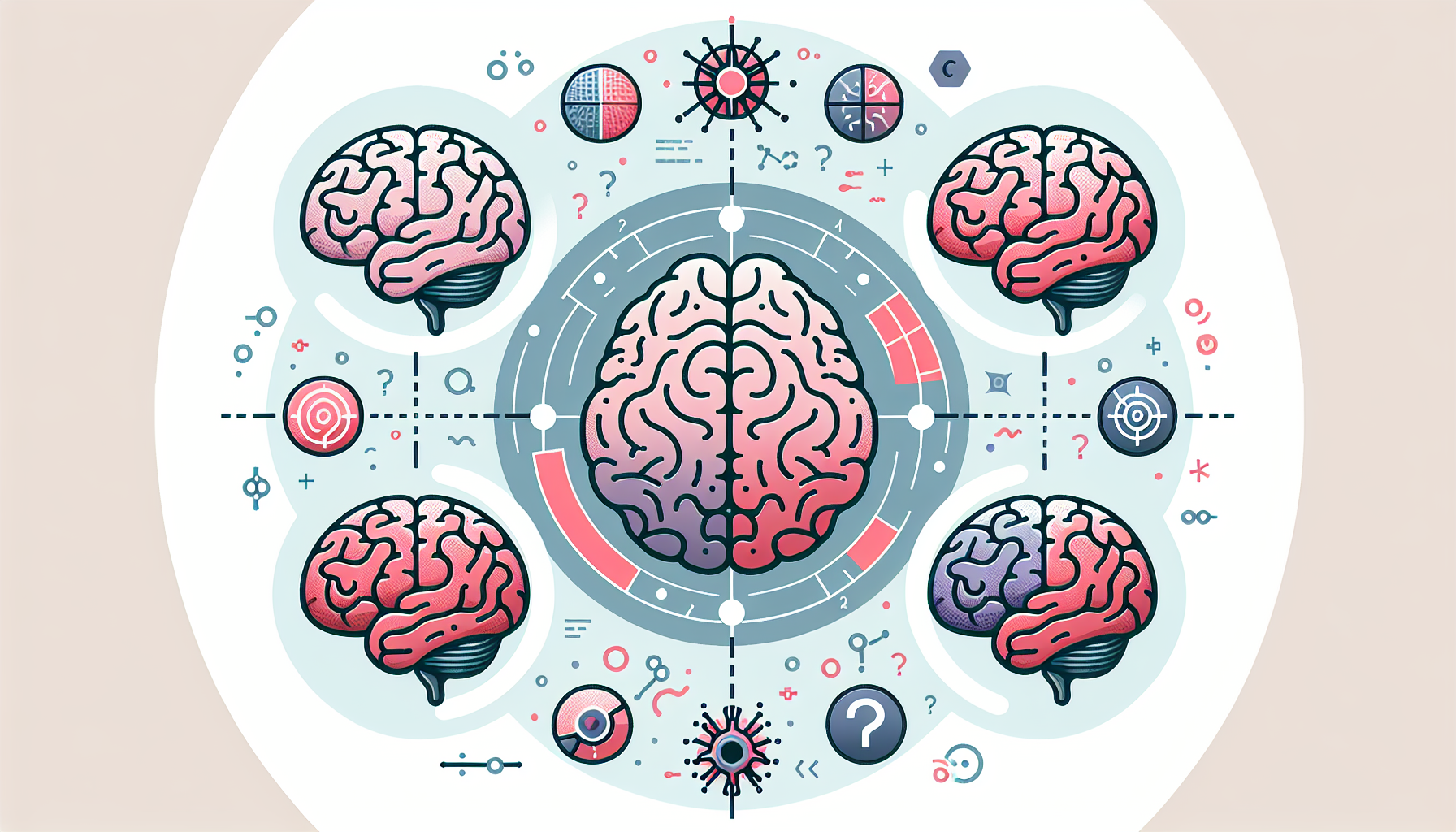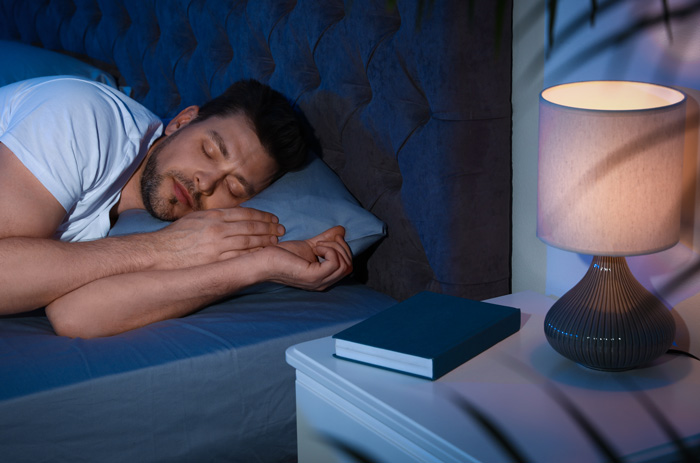Parasomnias are a group of sleep disorders characterized by abnormal behaviors or experiences during sleep. These disorders can occur during various stages of sleep, including non-rapid eye movement (NREM) sleep and rapid eye movement (REM) sleep.
Types of Parasomnias
- NREM Parasomnias:
- Sleepwalking: Walking or performing other activities while asleep.
- Night Terrors: Episodes of intense fear or panic during sleep.
- Sleep-Related Eating Disorders: Eating or drinking while asleep.
- REM Parasomnias:
- Nightmare Disorder: Frequent nightmares that cause significant distress.
- REM Sleep Behavior Disorder (RBD): Acting out dreams, such as punching, kicking, or yelling.
Causes of Parasomnias
The exact causes of parasomnias are not fully understood. However, several factors may contribute to their development, including:
- Genetics: A family history of sleep disorders may increase the risk.
- Sleep Deprivation: Lack of sleep can disrupt the normal sleep cycle.
- Stress and Anxiety: Emotional stress can trigger parasomnias.
- Medications: Certain medications can worsen sleep disorders.
- Medical Conditions: Underlying medical conditions, such as sleep apnea or neurological disorders, may contribute to parasomnias.
Treatment of Parasomnias
Treatment for parasomnias depends on the specific type and severity of the disorder. Some common treatment approaches include:
- Lifestyle Changes: Improving sleep hygiene, such as establishing a regular sleep schedule and creating a sleep-conducive environment.
- Medication: In some cases, medications may be prescribed to help regulate sleep and reduce symptoms.
- Cognitive-Behavioral Therapy (CBT): CBT can help individuals develop coping strategies and manage stress.
- Avoidance of Triggers: Identifying and avoiding triggers, such as stress or certain medications, can help reduce the frequency of parasomnias.
If you or someone you know is experiencing symptoms of a parasomnia, it’s important to consult with a healthcare professional for a proper diagnosis and treatment plan. Early intervention can help improve sleep quality and overall well-being.



